- Home
- Blake Banner
Verdugo Dawn Page 2
Verdugo Dawn Read online
Page 2
We stood like that for a long moment. She spoke first, but it was barely a whisper.
“What do you want?”
I didn’t know how to answer, so I said, “Coffee, black, and scrambled eggs on rye, toasted.”
Her eyes narrowed and after a moment, she went to get the coffee and the toast, but she seemed to do it in a suppressed rage, snatching and slamming the cup, the plate and the cutlery unnecessarily hard. A young boy, maybe sixteen, poked his head out of the kitchen. He glanced at me, then at her. “Estas bien?”
“Si! No pasa nada!”
He’d asked if she was OK. She’d said everything was fine. So I spoke Spanish, or at least I understood it.
She brought me the coffee. Her cheeks were flushed and her eyes were bright. She was pretty to the point of being beautiful. She put the cup down and filled it, gave her head an angry twitch. “So, how is he? Or am I not allowed to ask?”
I watched her a moment, then took the cup and sipped.
“Who?”
“Fine!”
She was about to turn away, but I asked her, “Do you know who I am?”
She met my eyes and hers were blazing. She snapped, “Un hijo de puta pendejo cabrón!”
A son of a bitch, an asshole and a cuckold. I nodded. “Maybe, but that is what I am like, not who I am.”
“You a philosopher now?”
“Was I not one before?”
The boy brought the toast out from the kitchen. She took it from him, put it in front of me and pointed at it. “Drink your coffee, eat your goddamn toast, and get the hell out of my diner. I don’t know why he sent you or what he wants with me. I don’t know why the hell you came. But I don’t want nothing to do with either of you!”
She moved away. I called after her, “Is he Castaneda?”
She swung around. Her expression was strange, hard to read: outrage, amusement mixed with fury, curiosity. “He wishes! In his dreams! That’s what he would like to be! But all he is, is a shit!”
I listened, trying to make sense of the crumbs of information she was giving me. I asked, “Why is Castaneda important to me? Why do I know who he is?”
She advanced on me, curling her lip. The anger in her eyes had died down, replaced by growing curiosity. Her cheeks were less red, but her breathing was quick and shallow. She said, “Because like all middle-class white boys, when you reached seventeen, you decided to read The Teachings of Don Juan, and you thought you had found the secret to life, the universe and everything! All you had to do was take lots of peyote buds, fuck a lot of chicks and your mind would open and you would become the eagle…”
“The eagle?”
“Flying over the world, understanding everything! The great white male god. Freedom! Free your mind! Isn’t that it? Isn’t that all you want? Leave all of your goddamn responsibilities behind, with some Maria to take care of them! Take your peyote, expand your mind, walk away from everything that is important and valuable in life and expand your fu…” She stopped, closed her eyes and took deep breaths. “Your mind.”
I frowned, watching her anger and somehow fascinated by it.
“Is that what I did?”
She shook her head. “I don’t know what you did. You disappeared. All I know is what you didn’t do.” Then she scowled at me. “Why are you askin’ me these stupid questions? What’s the matter with you?”
A lurch of adrenaline in my gut. “What I didn’t do? So you do know who I am. What didn’t I do?”
“I don’t know who you are! I don’t know anything about you. You are just some guy who showed up, playin’ the big, macho savior. Then you went away, leaving behind lots of easy promises, and you never came back. Now please, drink your fuckin’ coffee and do what you are good at. Leave, and don’t come back.”
I put a crumpled bill on the counter. She stood staring at me and at the money by turns.
“That’s a hundred-dollar bill… What am I now, some fuckin’ puta?”
I picked it up and looked at it, then put it back in my pocket, pulled out a ten and offered it to her. She snatched it with her eyes flitting over my face. I drank the coffee and ate the toast while she got my change. When she brought it to me, I said, “But, I did come back.”
The door opened behind me and I heard a bell chime. I turned to look. There was a man with black, oiled hair and a large black mustache. He was dressed in a pale gray silk suit that was as vulgar as it was expensive. Outside, I could see a black Mercedes with two guys in shades wearing less expensive, but equally vulgar Italian suits. I knew they were trouble, though I didn’t know why.
The woman behind the counter held my eyes as I turned back to her. The rage was gone and all I could see now was tragedy and deep sadness. “Too late,” she said.
The man was approaching the counter on patent leather, slip-on shoes, smiling unctuous words as he walked.
“Cariño, como esta hoy mi palomita? Me ponéis vos unos huevos revueltos con jamón, y un café…”
It went on, but I stopped listening. I ate my toast and sipped the coffee, black. She knew who I was. And there was some other guy she thought had sent me. He might be Castaneda, but she’d said he wasn’t. He’d like to be Castaneda, in his dreams. I didn’t know what that meant, but I would find out.
I finished my breakfast and stepped out into the asphalt heat of the parking lot. The sun was just a couple of inches over the horizon, but it was already sapping the moisture out of the earth. I paused and a reflex action made me reach for cigarettes and a lighter in my pocket. I froze. The cigarettes were Camels, and the lighter was an old, battered brass Zippo. But where? Not in my pockets. Where?
Where…?
“You got a problem, boy?”
I found the source of the voice. He was standing by the hood of the Mercedes. Six-six, red hair, crew cut, pale skin and freckles, nineteen-inch neck, powerful shoulders and back. Powerful legs. Physically dangerous, but the piggy blue eyes said he was stupid. The double-breasted, shiny Italian suit said he had no judgment and no taste.
His pal was sitting on the hood. Same suit, but smaller. Five ten, Mexican, dark, wiry but strong. He wasn’t stupid the way his gorilla friend was, but he was stupid enough. He was watching me with incurious eyes while he chewed gum.
I looked back at his freckled friend.
“Yeah.”
He smiled like he’d scored a point. “Zat so?”
“I just told you it was.”
He took a couple of steps toward me. I could see the bulge under his left arm and wondered what it was. Somehow, I knew that goons like him always carried either a Glock 17 or a 19.
“Well, maybe I can help you with that problem, boy.”
“Do you know who I am?”
For a moment his eyes narrowed and he looked back at his Latino pal. His pal made a face and shrugged.
I said, “Do you know my name?”
He made a face like I’d just asked him to give me his last Oreo. “What the fuck, man?”
I shook my head. “Then you can’t help me.”
I heard the Mexican laughing as I walked away. The other guy called after me, telling me to go back, but I ignored him.
I crossed the empty lot next to Casa Castaneda and walked the two hundred yards to the gas station beyond it. The sun was growing hot and I could smell the fine dust in the air. I was thinking that I didn’t want the two thugs in Italian suits to see me climb into the Jeep. I wanted to give them time to get ahead of me. Then I wanted to follow them, and see where they went.
But I wasn’t sure why yet.
I pushed in through the glass door of the convenience store at the gas station. There was a guy in his fifties behind the counter. He had a big belly and thick glasses and he was talking a lot to a deputy who was chewing and nodding while he listened. I could see the cigarettes behind him.
He stopped talking to the deputy and looked at me. “Do for ya?”
“Packet of Camels.”
The deputy was wa
tching me like I was interesting. The attendant reached for the Camels and kept talking.
“I’m scared! I am literally scared. I weren’t here that night, but I could’ve been, Hank.” He stood staring at the deputy, with the cigarettes poised a couple of inches above the counter. “I could have been. And then it would be me, dead, waitin’ for my funeral. Six fifty-five.”
This last was directed at me. I handed over ten bucks. “You sell Zippo lighters?”
“Uh-uh.” He shook his head. “Only disposable lighters.”
The deputy was cleaning his teeth with his tongue as he watched me take the change, my cigarettes and the lighter. “I ain’t seen a Zippo in a while. Always used one m’self till I quite smokin’. Closest Zippo store…” He gazed out at the stark heat in the forecourt. “That’s gonna be Walmart in El Paso.”
“Thanks.”
“You OK, friend? You don’t look so good.”
“Yeah, I’m fine, thanks. Late night.”
He gave a lopsided smile while the shop attendant’s glasses stared at me like two small TV screens. The deputy nodded his head at the cigarettes. “Well, them things will kill you, one day at a time.”
“Yeah.” I nodded. “Life will do that.”
I stepped back out into the sunlight and shaded my eyes with my hand. The Mercedes was still there, but there was a small crowd beside it. I could make out the silk suit, the two thugs and the girl. She stood on tiptoes and kissed the silk suit. I saw him hold her ass in his left hand, then he was waving to her and climbing into the back of the car. I waited till they were all in and then I sprinted. I sprinted in boots over uneven dirt with rocks, holes and humps. Even so, thirty seconds later, I was skidding to a halt and clambering into the Jeep as the Merc turned out of the lot and onto the road. I fired up the electric engines and slipped out after them, giving them a six-car lead and then falling back a bit.
I followed them south through the desert. On all sides it was flat, red and covered in gnarled scrub, with the dark blue mass of the Sacramento Mountains rising in the south and the east.
They kept going for eight or nine miles, till we came to Alamogordo, where they continued on down White Sands Boulevard until they reached Walgreens, and then turned left into East 10th. They followed that all the way to the end, till they’d come out of the town and into the desert again, where the Marble Estates are, and all the side streets are named after the sun. There, they turned down Marble Estates Drive into Marble Canyon, where I had to stop because there was a big gate that kept riffraff like me out of the kind of nice neighborhood occupied by drug barons.
I turned and drove slowly back into town. I cruised past the White Sands Habitat for Humanity Center and the Olympian University of Cosmetology and started to wonder if all the conspiracy theorists weren’t right after all, and the aliens had taken over White Sands in 1947.
Finally, I found the Café 555 on East 10th and sat and had a pint of coffee while I thought—or tried to think.
I decided I had two problems. First, there was the girl at Castaneda’s. She knew me, and she knew somebody else who knew me: a man, a man she thought had sent me. I needed to persuade her to talk to me, to tell me who I was, and give me the name and the address of that other man. But I didn’t know how to do that.
And the second problem I had was the compulsion to kill. It wasn’t random, I knew that. I had seen Ivory in the club and I had seen what he was doing. I had realized he was amassing a lot of money, and I needed money, so it made sense to kill him and take his. But even as I was rationalizing it to myself, I had known that the true motivation was not cash. The motivation was that I hated Ivory, and everything he stood for.
And now I had seen the man in the silk suit at Castaneda’s, and I had seen the proprietary way he treated that woman. It sickened me, but there was something else, a reek about him that I recognized, and now I wanted to kill him, too.
Three
They came in like a flock of vultures, six of them on bikes. They wore red bandanas, leathers under denim jackets with the sleeves torn off, tattoos and boots. Some carried guns half-concealed in their waistbands, all carried knives. They invaded the gas station with quiet menace. They were cool. They didn’t threaten anyone. They didn’t do anything except go about their business. But people filling their cars and trucks finished up quickly, paid up and left, and pretty soon, all the pumps were taken up by customized Harleys.
I watched them through the plate glass of the café window. They were not Angels. Angels tend to be big, bearded and white. These were smaller, darker Latinos, they had shaved heads and at most a mustache. They all had a lot of tattoos, and the emblems on their leathers were not Angel emblems. What they had was an upended pentacle, with two points facing up and one facing down, like the horns and the beard of a goat. At the center was a winged Baphomet with fangs.
I knew who these were; they were the Chupacabras. For years, they had been the sworn enemies of the Angels all along the Mexican border, but had in recent years settled into an uneasy peace, where the Chupacabras controlled the bulk of the cross-border heroin and cocaine trade, while the Angels were allowed free rein with the internal marijuana racket and distribution of coke and heroin among their own markets.
Both the Angels and the Cabras were known to control very large amounts of money and to employ large firms of attorneys to whitewash that money. I knew this. I didn’t know how, but I knew.
As I pushed out of the 555 Café, they were pulling out of the gas station. They filed out onto East 10th and moved west with a loud roar of powerful engines. I dropped some money on the table and went out into the scorching midday sun to climb into the Jeep. Then I slipped out onto the blacktop and moved silently after them, keeping my distance. They turned south onto White Sands Boulevard and kept going onto Route 54, toward El Paso. I stayed with them.
They weren’t in a hurry. They were enjoying the drive and not paying any attention to what was behind them. We left Alamogordo behind us and Boles Acres on the right, and soon we were in the desert again, with dead, red sand and small, dry shrubs struggling under the unrelenting sun, as far as you could see. There was no water, nor forgiveness, nor redemption; only glaring heat sapping the life out of the earth, and the six angels of death cruising the highway ahead.
Eventually, we came to the turnoff for the A506. They slowed and took the exit. I slowed and let them get ahead. The 506 cut east into the desert, where the desolation was total. I turned into the intersection, crossed the northbound carriageway and followed after the bikes. They were now six small specks in the distance. I accelerated gently and went after them.
After a couple of miles, the road turned gently south of east, and after another mile, there was another intersection with a broad, dirt track that led south again. There, on the intersection, there was a low, wood and adobe building set in slightly more than half an acre of land. I could see that the Cabras had pulled in and parked their bikes outside. As I approached, I slowed. It was a bar. It had a red Coca-Cola sign on the adobe wall outside, along with a sign for Cumbre Beer. Above the door, a neon scrawl said El Cabrito Veloz, the speedy goat. There were also a couple of trucks, so I figured maybe it was not an exclusive club. I’d soon find out. I pulled in and parked in the shade of a couple of spruce. My stomach told me to check the time. It was half past twelve and I realized I was hungry.
I swung down onto the white sand and smelled the charred aroma of grilled burgers on the afternoon air. I climbed the steps to the porch and inside, I could hear the thud and twang of old-school country rock. I pushed through the door and the country rock became Creedence, “Bad Moon Rising.” There was no hush, no hostile silence, like I had walked into the wrong place.
A big guy behind the bar with a mustache that covered his mouth was laughing with a farmer and a girl sitting on stools. The TV was showing cage fights in the corner and four guys were playing pool at a table in the back, the green baize bright under low lamps. The floors were wooden, p
olished, and the tables on the right were round, with four and six chairs. There were guys sitting, drinking beer, some eating. Most had the look of farmers and ranch workers. Over in the far corner, the six Chupacabras were sitting, talking, laughing, drinking Cumbres. I saw one of them jerk his head at the TV and they all turned to look. I noticed he had tattoos all over his face. Now he raised his voice and said, “Luke, turn it up. It’s about Ivory.”
The guy with the walrus mustache turned up the volume as I approached the bar. A woman in a crimson suit, standing in front of a smoldering wreck where a house used to be, was saying, “…experts are now saying that the gas explosion that destroyed this house on West 1st Street in Tularosa was no accident, and the medical examiner has stated that the three charred bodies did not, in fact, die as a result of the explosion and the subsequent fire, but that they were murdered, and at least two of them were shot to death. The Sheriff’s Department is now treating this as a multiple homicide…”
Luke jerked his head at me. “What’ll it be?”
“Beer.”
As he was pulling it, he said, “Long way off the beaten track.”
I nodded. “Yeah, just drifting a bit, thinking about writing a book.”
“Yeah?” He brought over the beer with a dish of peanuts. “Kind of book?”
I shrugged. “I was…” I thought for a moment, looking at the froth on my beer, and at the small, oval nuts, like .22 slugs. Then, the words came on their own. “’Bout how things change, how places change. And sometimes people who belong in a place can wind up not belonging anymore.”
His frown was more curious than hostile. “You got a story or just a vague idea?”
I gave a slow shrug. “I think a lot about the vets who wind up living out in the desert, in remote areas, like outcasts. They’re not welcome at home, because home has changed while they were away, and a lot of them don’t know where they belong anymore.” I sighed. “I say the country’s changed, but it was the same for the vets from ’Nam. What’s changed is that the wild parts of this country, where a man could make a home and be free and live on his own, doing his own thing… those places seem to be getting smaller every day.”

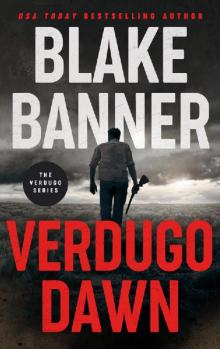 Verdugo Dawn
Verdugo Dawn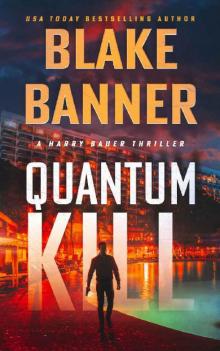 Quantum Kill (Cobra Book 4)
Quantum Kill (Cobra Book 4)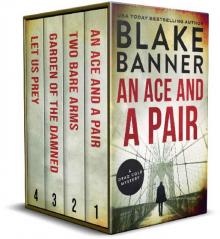 Dead Cold Mysteries Box Set #1: Books 1-4 (A Dead Cold Box Set)
Dead Cold Mysteries Box Set #1: Books 1-4 (A Dead Cold Box Set)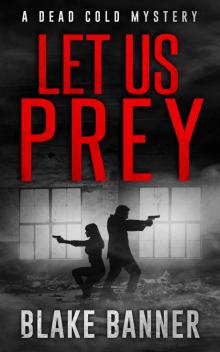 Let Us Prey
Let Us Prey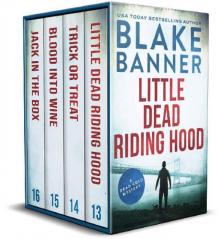 Dead Cold Mysteries Box Set #4: Books 13-16 (A Dead Cold Box Set)
Dead Cold Mysteries Box Set #4: Books 13-16 (A Dead Cold Box Set)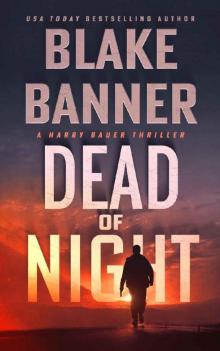 Dead of Night
Dead of Night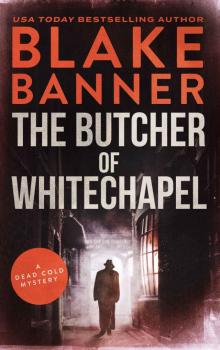 The Butcher of Whitechapel: Dead Cold Mystery 12
The Butcher of Whitechapel: Dead Cold Mystery 12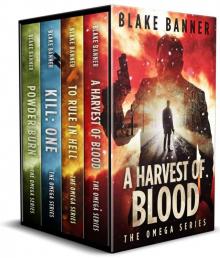 Omega Series Box Set 2
Omega Series Box Set 2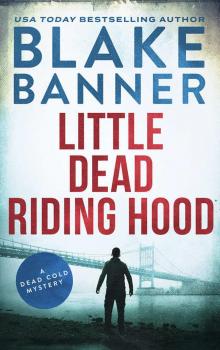 Little Dead Riding Hood: Dead Cold Mystery 13
Little Dead Riding Hood: Dead Cold Mystery 13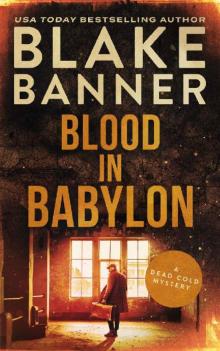 Blood in Babylon
Blood in Babylon Powder Burn
Powder Burn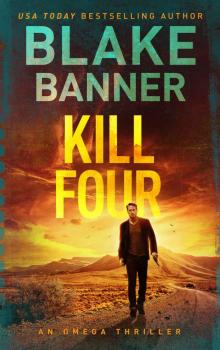 Kill Four
Kill Four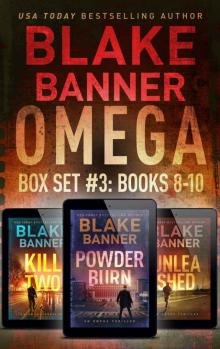 Omega Series Box Set 3
Omega Series Box Set 3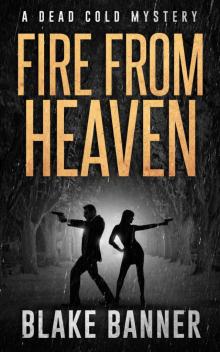 Fire From Heaven: Dead Cold Mystery 9
Fire From Heaven: Dead Cold Mystery 9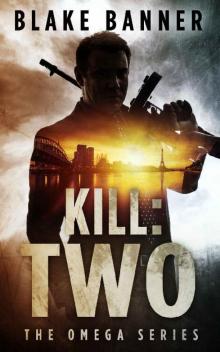 Kill - Two
Kill - Two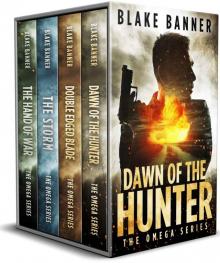 Omega Series Box Set 1
Omega Series Box Set 1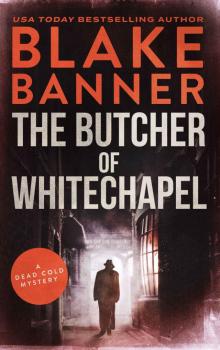 The Butcher of Whitechapel
The Butcher of Whitechapel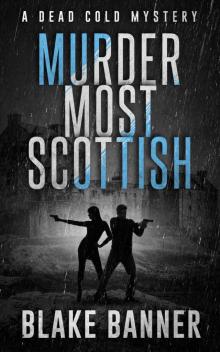 Murder Most Scottish
Murder Most Scottish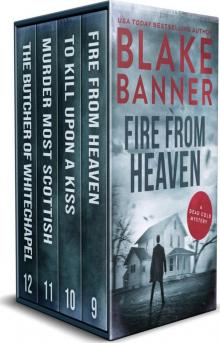 Dead Cold Mystery Box Set 3
Dead Cold Mystery Box Set 3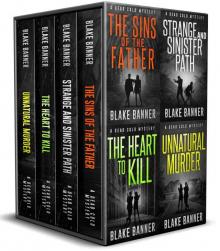 Dead Cold Mysteries Books 5-8
Dead Cold Mysteries Books 5-8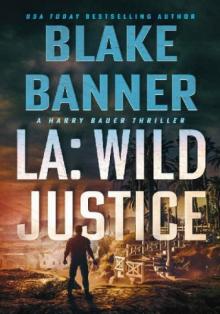 LA
LA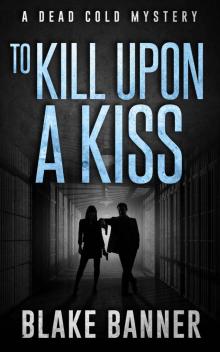 To Kill Upon A Kiss: Dead Cold Mystery 10
To Kill Upon A Kiss: Dead Cold Mystery 10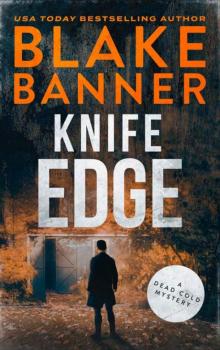 Knife Edge (A Dead Cold Mystery Book 27)
Knife Edge (A Dead Cold Mystery Book 27)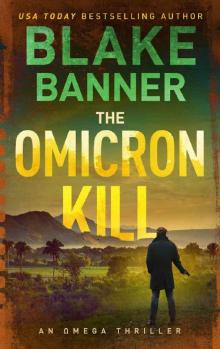 The Omicron Kill - An Omega Thriller (Omega Series Book 11)
The Omicron Kill - An Omega Thriller (Omega Series Book 11)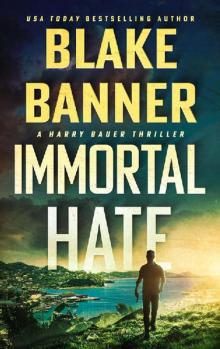 Immortal Hate (Harry Bauer Book 5)
Immortal Hate (Harry Bauer Book 5)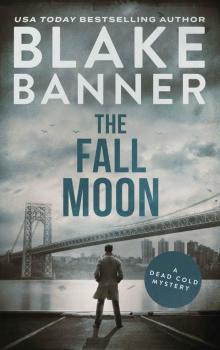 The Fall Moon
The Fall Moon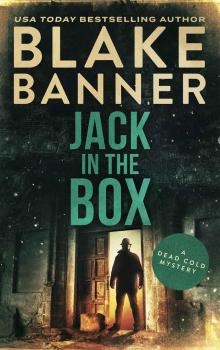 Jack in the Box
Jack in the Box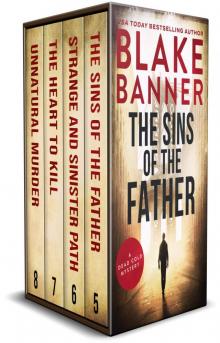 Dead Cold Mystery Box Set 2
Dead Cold Mystery Box Set 2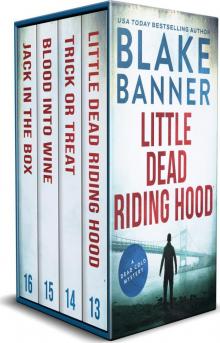 Dead Cold Mystery Box Set 4
Dead Cold Mystery Box Set 4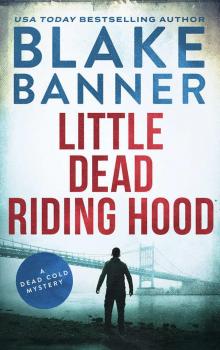 Little Dead Riding Hood
Little Dead Riding Hood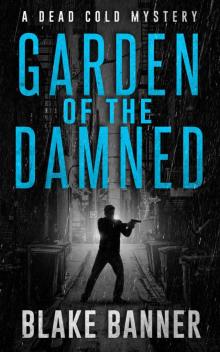 Gardened of the Damned
Gardened of the Damned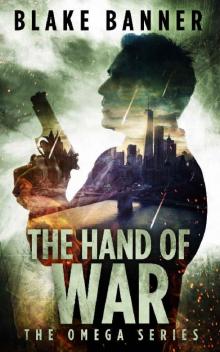 The Hand of War
The Hand of War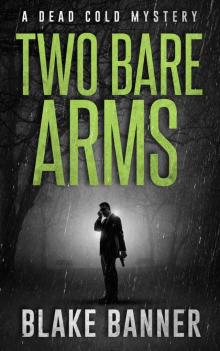 Two Bare Arms
Two Bare Arms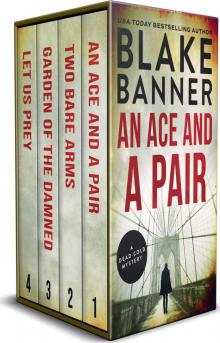 Dead Cold Mystery Box Set 1
Dead Cold Mystery Box Set 1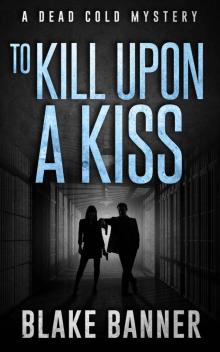 To Kill Upon A Kiss
To Kill Upon A Kiss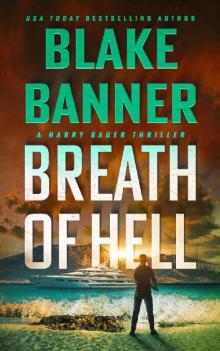 Breath of Hell (Harry Bauer Book 8)
Breath of Hell (Harry Bauer Book 8)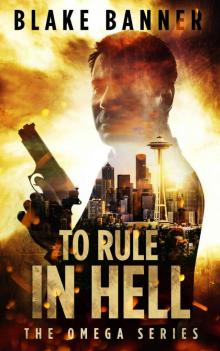 To Rule in Hell
To Rule in Hell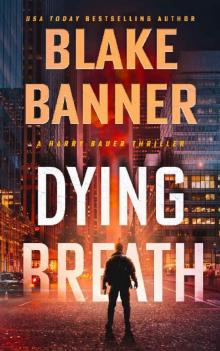 Dying Breath (Cobra Book 2)
Dying Breath (Cobra Book 2)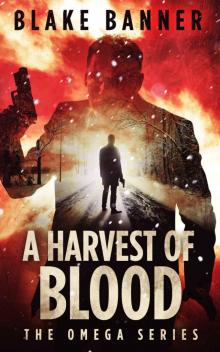 A Harvest of Blood - An Action Thriller Novel (Omega Series Book 5)
A Harvest of Blood - An Action Thriller Novel (Omega Series Book 5)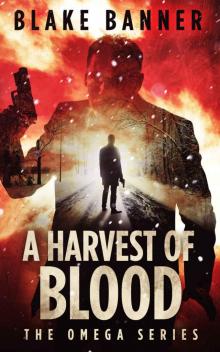 A Harvest of Blood - An Action Thriller Novel
A Harvest of Blood - An Action Thriller Novel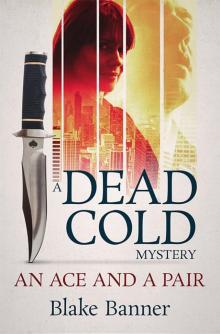 Ace and A Pair: A Dead Cold Mystery (Dead Cold Mysteries Book 1)
Ace and A Pair: A Dead Cold Mystery (Dead Cold Mysteries Book 1)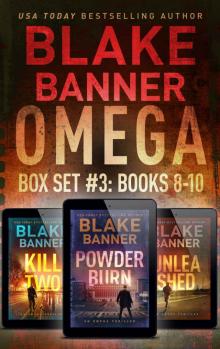 Omega Series Box Set 3: Books 8-10
Omega Series Box Set 3: Books 8-10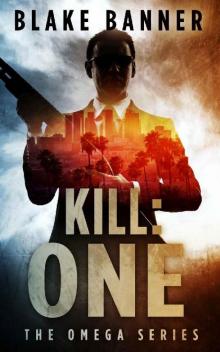 Kill One_An Action Thriller Novel
Kill One_An Action Thriller Novel The Storm
The Storm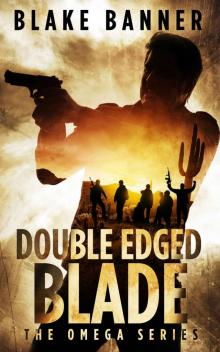 Double Edged Blade
Double Edged Blade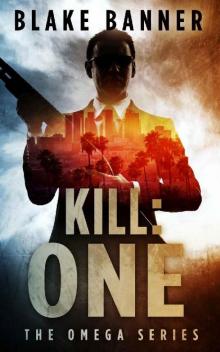 Kill: One - An Action Thriller Novel (Omega Series Book 7)
Kill: One - An Action Thriller Novel (Omega Series Book 7)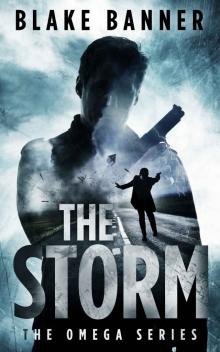 The Storm - An Action Thriller Novel (Omega Series Book 3)
The Storm - An Action Thriller Novel (Omega Series Book 3)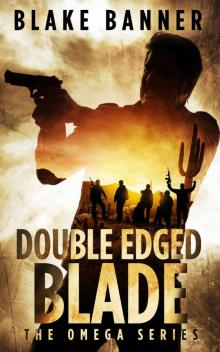 Double Edged Blade - An Action Thriller Novel (Omega Series Book 2)
Double Edged Blade - An Action Thriller Novel (Omega Series Book 2)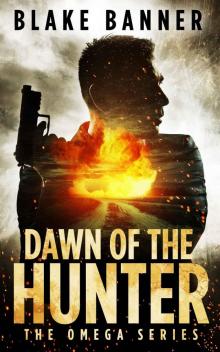 Dawn of the Hunter
Dawn of the Hunter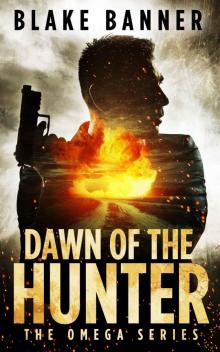 Dawn of the Hunter - An Action Thriller Novel (Omega Series Book 1)
Dawn of the Hunter - An Action Thriller Novel (Omega Series Book 1)